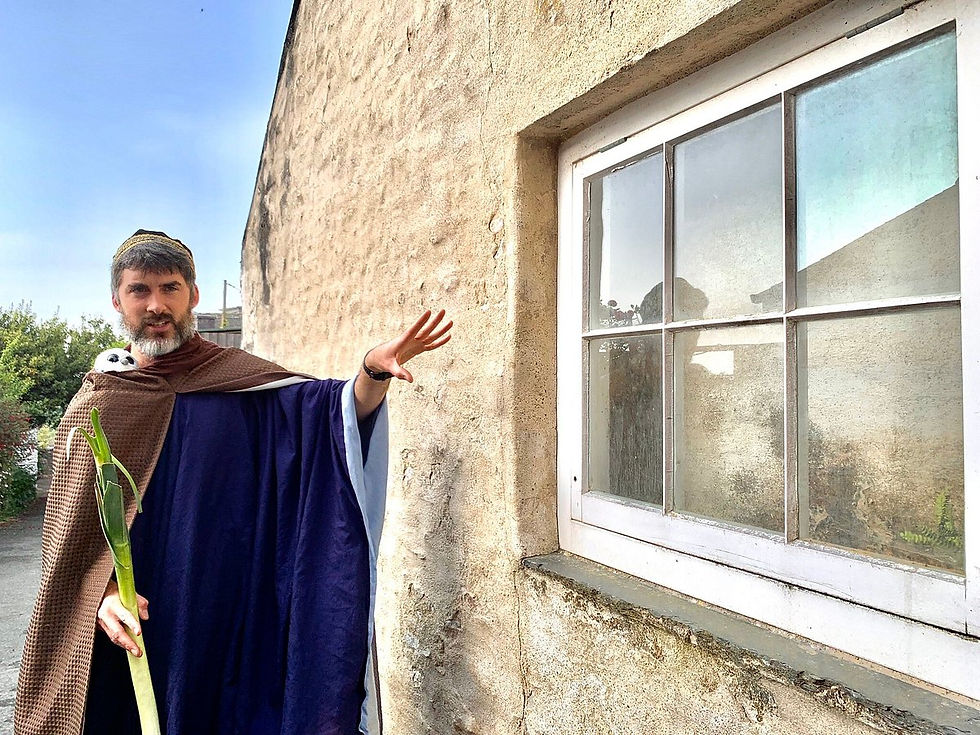Advice for protecting endangered monks on the St David's Peninsula
- firedonkeyproducti
- Apr 16, 2023
- 2 min read
A Public Service Message from the Royal Society for the Protection of Monks

Endangered monks are a critically endangered species that are facing threats from a variety of factors, including habitat loss, climate change, and human interference (see Reformation circa 1530's).
One of the most important nesting sites for these monks is located on the St. David's Peninsula, in Pembrokeshire, Wales.
As the summer months approach, many people visit Pembrokeshire for its stunning coastline, pristine blue-flag beaches and, of course, its indigenous monk population. And while the National Park in Pembrokeshire encourages the public to visit to explore and appreciate the beauty of the Pembrokeshire coast, it's important to remind the public to be mindful of these endangered beings and to avoid disturbing their nesting sites.
Disturbing these sites can cause significant harm to the monks and can have long-lasting effects on their populations, which have never really recovered since the time of Henry Viii.
Pembrokeshire Monks are known for their shyness and reclusive nature, which makes them particularly vulnerable to human disturbance, especially if that human disturbance involves bashing their heads in with wooden bats and burning them on large bonfires. Even seemingly harmless actions, such as walking too close to their nesting sites, can cause the monks to abandon their nests or flee the area, leaving their young (commonly referred to as "monklings") vulnerable to predators.
To help protect these endangered creatures, it's important to follow a few simple guidelines:
Stay at least 50 meters away from monk nesting sites: This will help ensure that the monks are not disturbed and can continue to care for their young.
Keep noise levels low: Loud noises can startle the monks and cause them to flee the area.
Do not touch the monks or their young: Touching the monks can cause them to become stressed or aggressive, which can be dangerous for both the monks and humans.
Do not feed the monks: Feeding the monks can cause them to become dependent on humans and can disrupt their natural feeding patterns.
By following these guidelines, we can help protect the monks and their nesting sites on the St. David's Peninsula. It's important to remember on your visit to Pembrokeshire that these creatures are facing significant threats and need our help to ensure their survival. Let's do our part to protect them and preserve their natural habitats for future generations.
To learn more about monks and their lifestyles and connection to the city of St Davids, why not join The Best Ever 100% Verifiably Accurate Walking Tour of St Davids. These fun and insightful tours run all summer and are considered amongst the best ever and most verifiably accurate of all the walking tours in the St David's area.




Comments